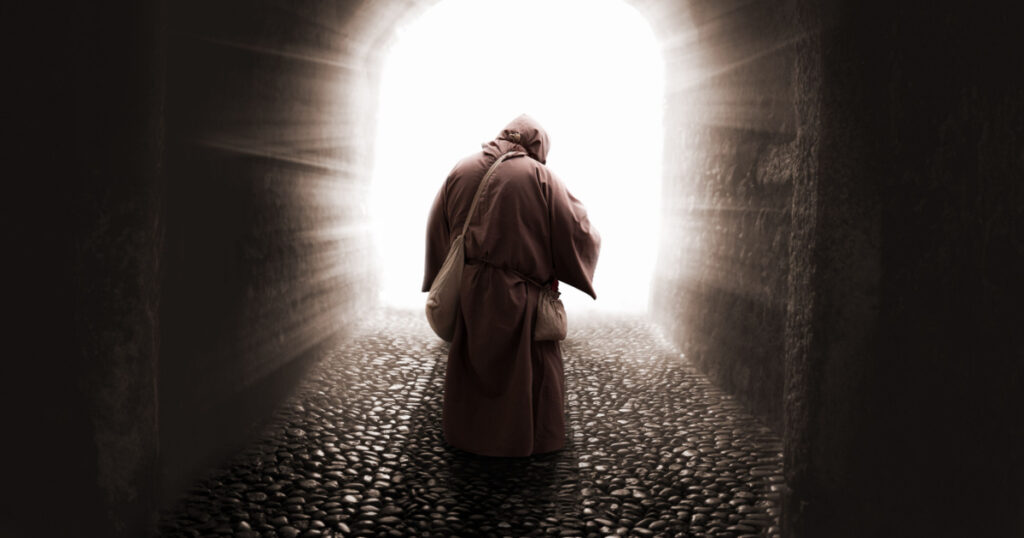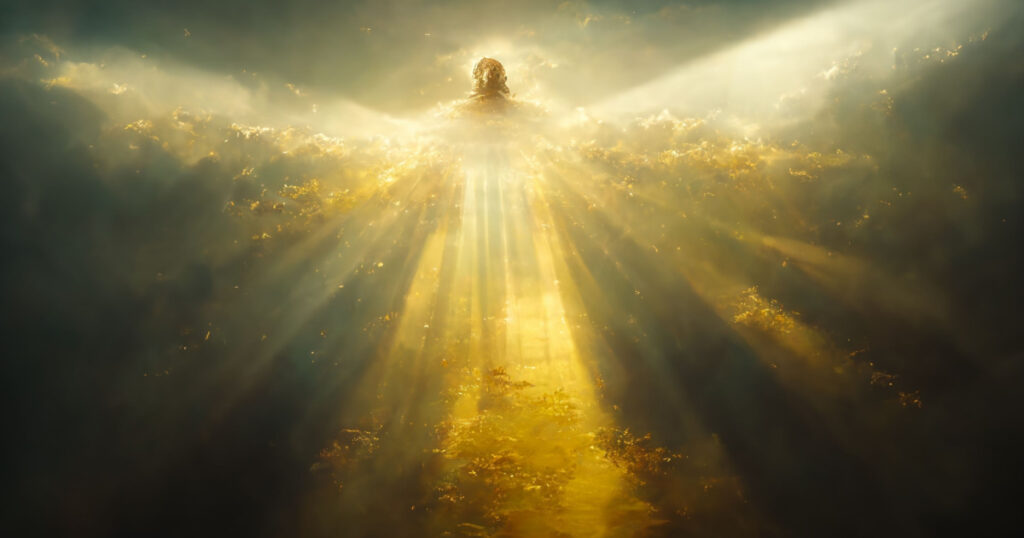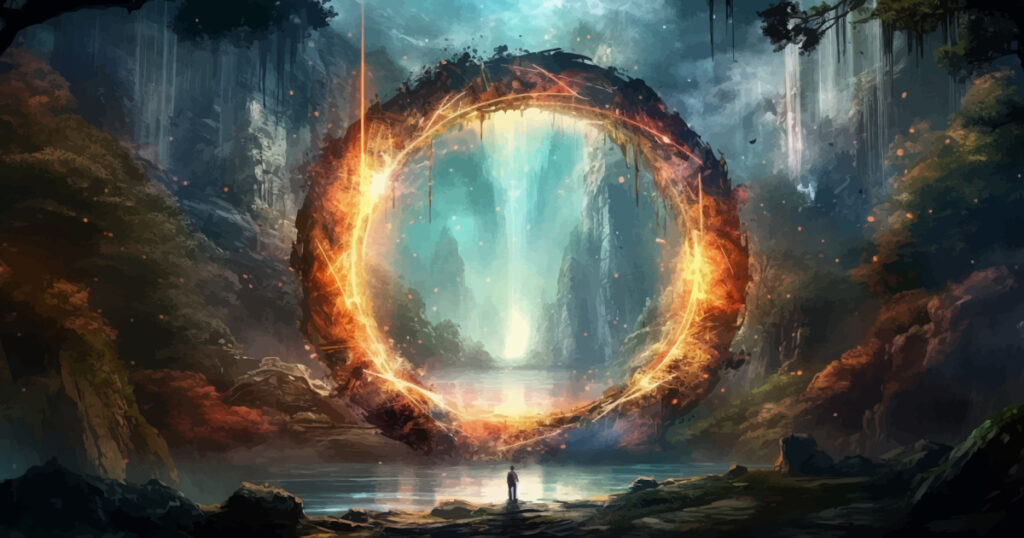The concept of the afterlife has captivated human minds for centuries. Different cultures, religions, and individuals hold varied beliefs about what happens after we die. Depending on what you believe and what religion you adhere to, you will have different opinions on what happens after we die.
17 Misconceptions About the Afterlife According to the Bible
In the Christian faith, there are many things said in the Bible about the afterlife, however, there are certain misconceptions, as well. These are 17 things people may be getting wrong about the afterlife, primarily drawing from the perspective of the Bible. However, it is important to note that many other religions hold different beliefs, and we will highlight some of these opposing viewpoints to provide a comprehensive understanding. (1)
1. Birds as Reincarnated Loved Ones

Many people believe that birds are reincarnations of deceased family members. However, the Bible does not support the idea of reincarnation (1 Corinthians 15:12-22). It is important to recognize that this perspective is limited to the Bible, as other religions such as Buddhism and Hinduism do believe in reincarnation. Therefore, we will leave you to decide what you believe in.
2. Personalized Heaven for Everyone

Another common misconception is that each individual will have a personalized version of heaven. You’ll often hear people say things like “my personal heaven is…” and then go on to explain that it is something that they love here on Earth, like a giant room full of puppies. While scripture describes heaven as a place prepared by God for His followers (John 14:2), it does not detail personalized paradises for each individual.
3. Purgatory as a ‘Middle Ground’

The concept of purgatory, a state of purification after death, is not found in the Bible. While certain Christian denominations believe in this concept, it is not supported biblically.
4. Reincarnation as Universal

Reincarnation is not a biblical concept. Hebrews 9:27 states that it is appointed for man to die once, and after that comes judgment. However, it is worth mentioning that many Eastern religions, such as Buddhism and Hinduism, do believe in the cycle of reincarnation.
5. Afterlife Beyond Heaven and Hell

While the Bible speaks of heaven and hell as final destinations (Matthew 25:46), it also mentions other realms like Sheol or Hades. These are often interpreted as the grave or the realm of the dead. This suggests a more nuanced understanding of the afterlife.
6. Good Deeds Guarantee Heaven

Contrary to popular belief, good deeds alone do not guarantee salvation and entrance into heaven. Ephesians 2:8-9 emphasizes that salvation is through faith, not by works. Again, this may depend on your beliefs because, according to that statement, it doesn’t matter how you act on Earth as long as you believe in God and go to Church every Sunday, you will get into heaven. For many people, that one is tough to believe. (2)
7. Ghosts as Stuck Souls

The Bible does not provide a clear stance on ghosts. However, it warns against attempting to communicate with the dead (Deuteronomy 18:10-12). Different cultures and belief systems have varying interpretations of ghostly spirits. For example, the ancient Mexican tradition of Día de Los Muertos (day of the dead) specifically involves specific actions and objects, such as orange flowers and photos of deceased family members, to guide their spirits home to “visit” you. Meanwhile, Mexico remains a heavily Catholic country.
8. Animals and the Afterlife

While the Bible is clear about human salvation, it is less explicit about the fate of animals—however, passages like Isaiah 11:6-9 hint at the presence of animals in the new creation.
9. Humans Becoming Angels

Humans and angels are distinct creations. Despite this, their are many books, movies, and TV shows that depict this idea of humans becoming angels after death. The Bible does not suggest that humans become angels after death (Hebrews 1:14).
10. Eternal Bliss or Torment

Revelation speaks of a new heaven and new earth. This suggests a more complex afterlife than just eternal bliss or torment (Revelation 21:1).
11. Transformation of Physical Appearance

We often think that we will appear the same way in the afterlife as we do on Earth. The Bible speaks of believers receiving glorified bodies, different from their earthly ones (1 Corinthians 15:42-44). This implies a change in physical appearance. (3)
12. Time in the Afterlife

God’s nature is eternal, existing outside of time. The concept of earthly time may not apply in the afterlife (2 Peter 3:8).
13. The Physicality of the Afterlife

While the Bible describes heaven and hell, it often uses metaphorical language. This suggests that these realms might be beyond human comprehension.
14. Judgment for Humans and Fallen Angels

The Bible speaks of a final judgment for humans (Revelation 20:11-15), but it also mentions the judgment of fallen angels (2 Peter 2:4). This goes against the idea that judgement day is only for humans.
15. Near-Death Experiences

Many people claim or believe to have “seen” the afterlife after having a near death experience. Near-Death Experiences (NDEs) are intriguing phenomena, but the Bible does not specifically address them. Any interpretation should be approached with caution and discernment.
16. Fate of Children in the Afterlife

The Bible does not explicitly state the fate of children who die young. However, many theologians believe in God’s mercy and grace towards them.
17. The Limitations of Human Comprehension

While believers will gain greater understanding in the afterlife, there may still be mysteries of God that remain beyond human comprehension (1 Corinthians 13:12).
The Bottom Line
The afterlife remains a subject of profound mystery and diverse beliefs. This article has explored common misconceptions about the afterlife, primarily from a biblical standpoint. However, it is essential to acknowledge that different religious traditions hold contrasting views on this matter. There also remains the fact that everything we “know” about the afterlife is not actual knowledge – it is a belief based on ancient texts (the Bible, the Quran, etc) that may or may not be true. We won’t know for sure until we get there one day. By recognizing these diverse perspectives, we can develop a more comprehensive understanding of the complexities surrounding the afterlife.